20-21 July 2017
Ace Resort and Water Spa Hotel
Pasig City, Philippines
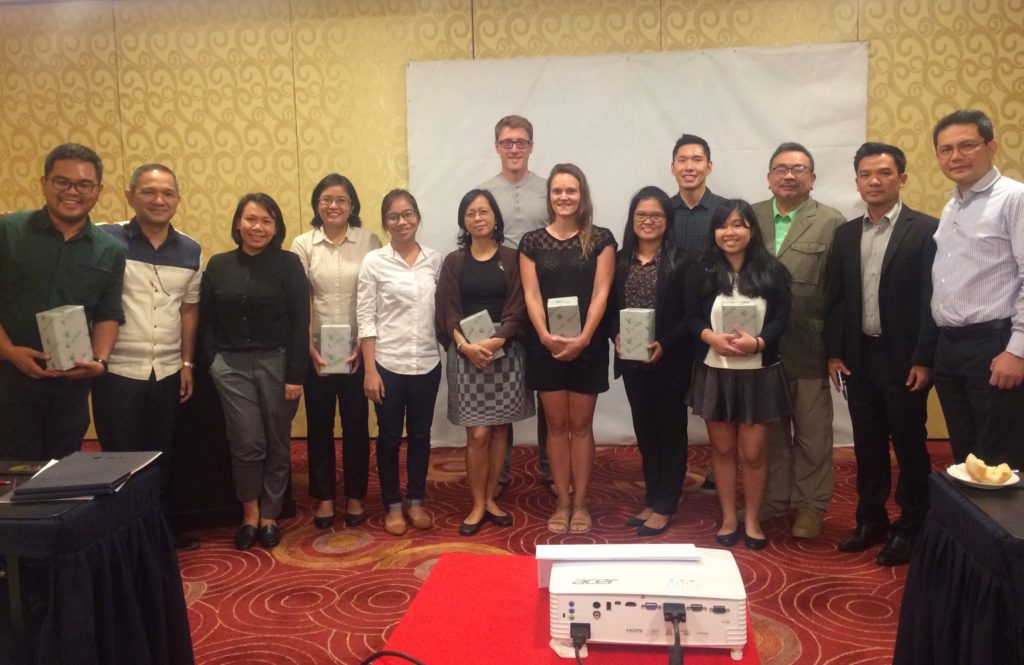
On 21 July 2017, the Newton Tech4Dev Network hosted a workshop that focused on technologies and innovation spaces in disaster management.
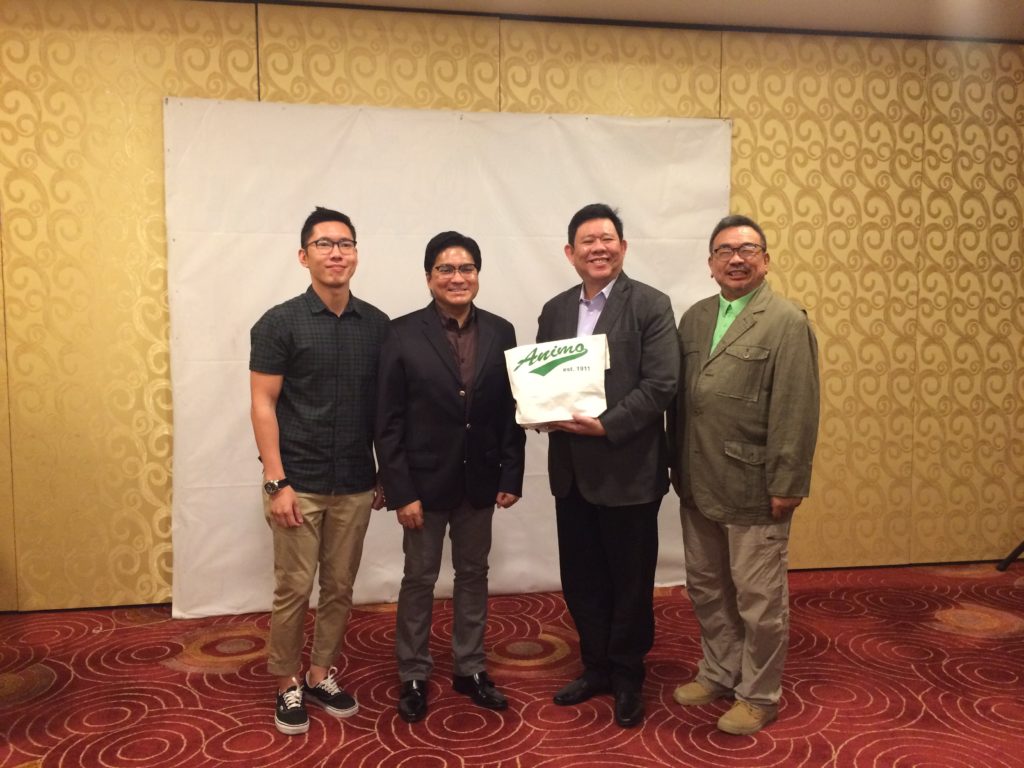
Dr Napoleon Juanillo, Director of the Office of Planning, Commission on Higher Education (CHED), welcomed the participants with his opening remarks. In his speech, Dr Juanillo highlights the importance of production of research and expanding of knowledge in nation building.
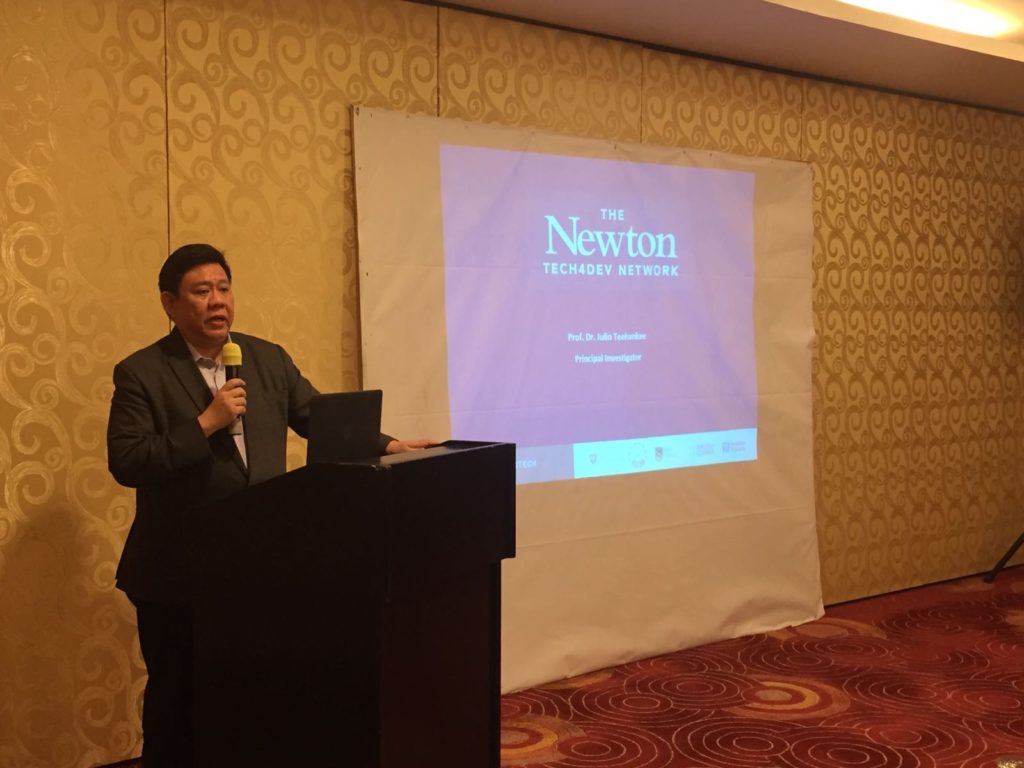
Professor Julio Teehankee, Principal Investigator-Philippines and Dean of College of Liberal Arts, De La Salle University, provided an overview and updates about the Newton Tech4Dev Network. He also introduced the three research streams of the Network, its key achievements and intellectual assets in terms of publication and institutional inks created between University of Leicester and De La Salle University researchers.
The first part of the workshop discussion was led by Emmanuel Lallana, Chief Executive of IdeaCorp, with his presentation on reimagining disaster governance in the Philippines. He identified key areas of improvement in terms of disaster governance and policy. He looked into the effectiveness of decentralization as an approach to disaster risk reduction and management, and how climate change adaptation can be integrated into law. Overall, he argued that attaining a disaster governance approach that is “less rigid, less uniform, less prescriptive,” with “flexibility and multilevel arrangements and adaptive” could be helped by the affordances of information and communication technologies.
Dr Sherwin Ona, Associate Professor and Rabby Raviles, Researcher from De La Salle University talked about ICT disaster informatics and its potentials in enhancing local communities’ disaster prevention and response initiatives. He identified that geospatial maps is a useful starting point for capacity building and innovation in community-level disaster response.
Ms Maritess Carreon, Assistant Professor at De La Salle University, presented the potentials of eBayanihan in helping Sorsogon province which is vulnerable to hydro-meteorological hazards. eBayanihan serves a tool that aims to improve disaster management of the province through faster emergency response and efficient information and data collection from communities.
Ms. Karla Ruiz, MA student from the De La Salle University presented her ongoing MA thesis on information asymmetry that is manifested in maternal health programs and its effect in developing an effective disaster strategy for local government units.
Professor Julio Teehankee with Dr Jayeel Cornelio (through his audio recorded presentation), Director of Development Studies at the Ateneo De Manila University, discussed their work on “Religious Philanthropy and Disaster Response: A Transnational Approach”. In this presentation, Prof. Teehankee and Dr Cornelio explored the initiatives of faith-based organizations in disaster response in the Philippines. Drawing from case studies of Iglesia ni Cristo and Tzu Chi Foundation, they explored the aspect of religion as “cultural infrastructure”, “spiritual resource” and its transnational dimension where transnational alliances made their interventions possible.
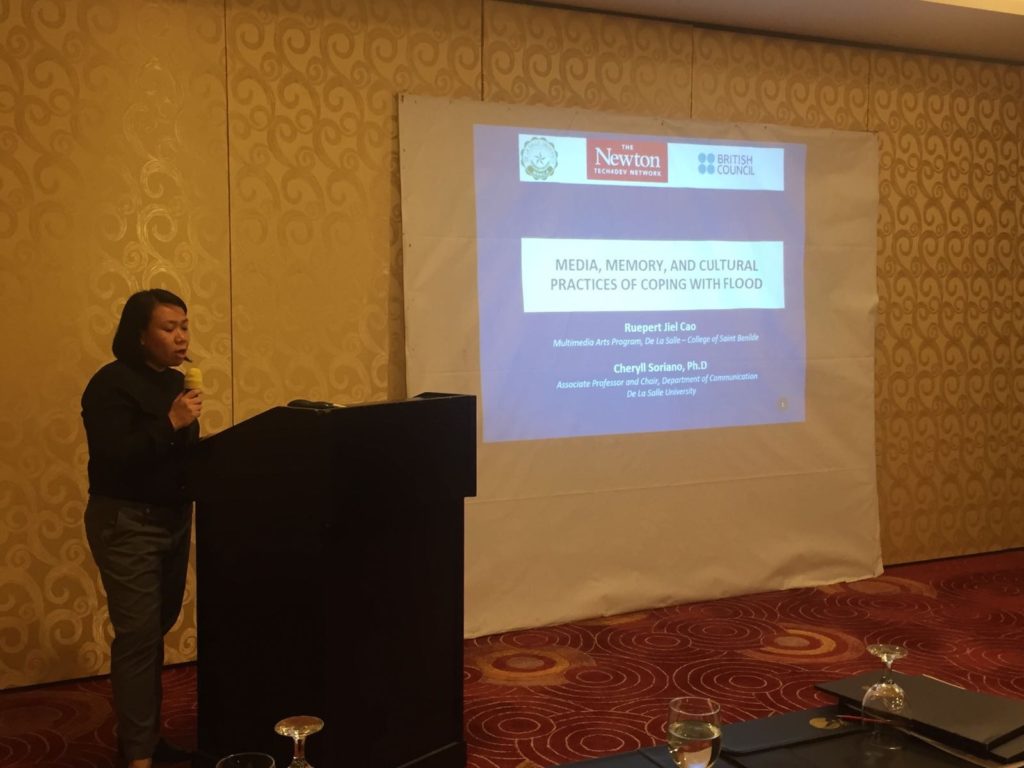
Dr Cheryll Soriano, Associate Professor and Chair of the Department of Communication, De La Salle University and Ruepert Jiel Cao, De La Salle College of Saint Benilde, presented their research on “Media and Cultural Carographies of Coping with Flood” where they discussed their initial findings on the ways communities submerged in flood use different types of media as information source.
Dr Padmapani Perez, Research Fellow at Far Eastern University, presented their ongoing research on the use of Facebook in mobilizing citizen aid. Citizen aid here refers to disaster response created through social media channels of organizations or individuals with no specific training or background in humanitarian work.
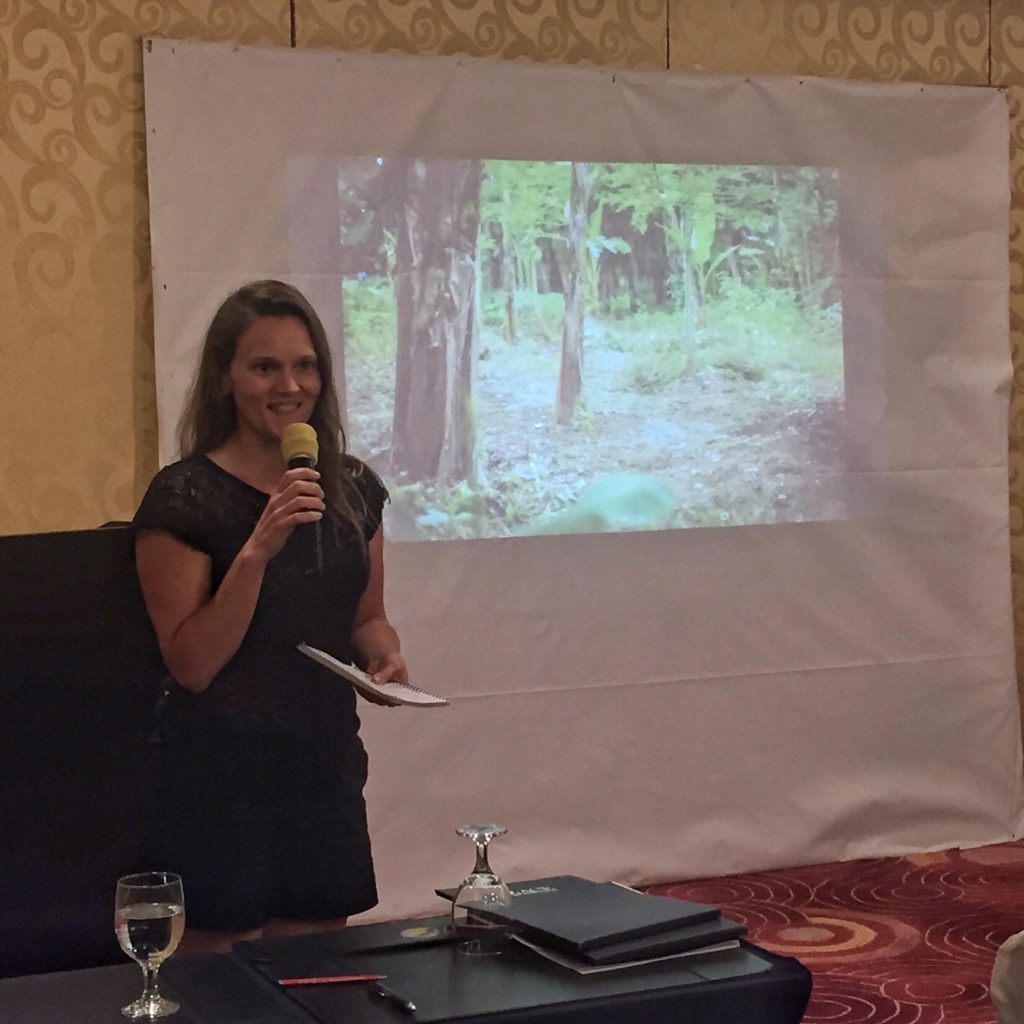 |
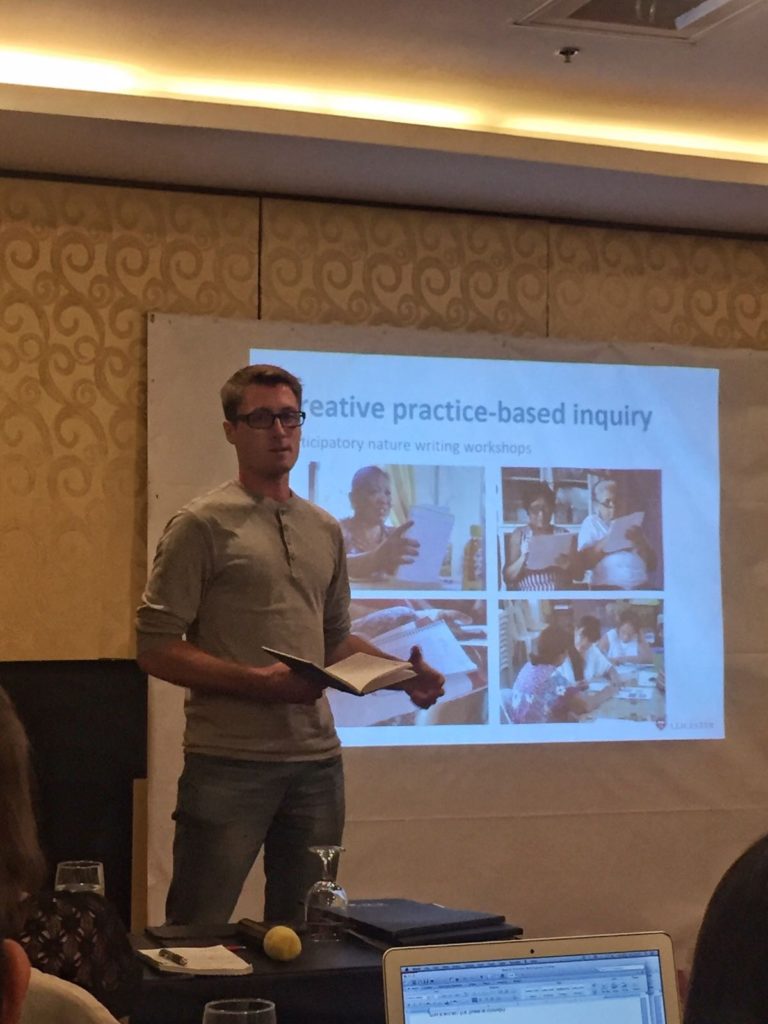 |
|---|
Dr Brett Matulis and Dr Jessica Moyer (University of Leicester) and Ms Marge Lanzador-Medina (De La Salle University) discussed their fresh-from-fieldwork findings and reflections on “Participatory Literature and the Creative Expression of Environemental Challenges”. Dr Matulis and Dr Moyer’s works with Filipinas from urban poor and rural communities to explore the potential of 21st century nature writing to empower disadvantaged communities, restore environmental rights at risk, and transform the global conservation agenda.
Dr Jonathan Corpus Ong, the convener of the Newton Tech4Dev Network, closed the workshop and thanked all participants for continually working with the Network to advance research on the use of ICT in disaster management.